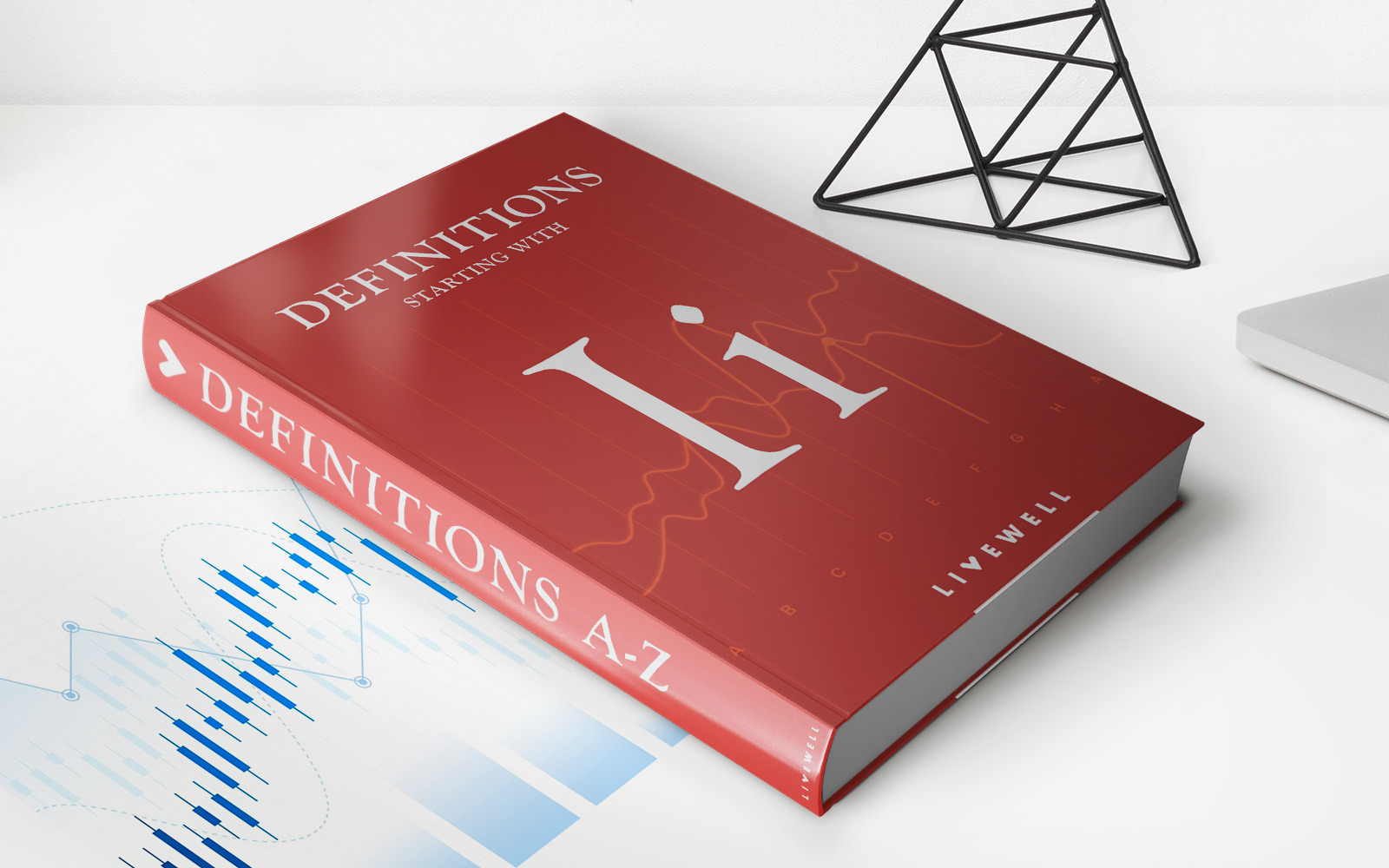

Finance
How To Pay Student Loans With Credit Card
Published: November 6, 2023
Learn how to pay off your student loans using a credit card and manage your finances more effectively. Discover smart strategies to tackle your debt and save money.
(Many of the links in this article redirect to a specific reviewed product. Your purchase of these products through affiliate links helps to generate commission for LiveWell, at no extra cost. Learn more)
Table of Contents
- Introduction
- Benefits of Paying Student Loans with Credit Card
- Potential Drawbacks of Paying Student Loans with Credit Card
- Factors to Consider Before Paying Student Loans with Credit Card
- Step-by-Step Guide to Paying Student Loans with Credit Card
- Tips for Successfully Paying Student Loans with Credit Card
- Alternatives to Paying Student Loans with Credit Card
- Conclusion
Introduction
Student loans can be a significant financial burden for many individuals, especially those who have recently completed their education. As they start their professional lives, the weight of student loan debt can hinder their ability to achieve other financial goals, such as saving for a down payment on a home or building an emergency fund. In an effort to alleviate this burden, some individuals may explore alternative methods of paying off their student loans, including using a credit card.
Paying student loans with a credit card can seem like an attractive option, as it may offer convenience and potentially provide some short-term benefits. However, it is essential to consider the implications and potential drawbacks before opting for this payment method.
In this article, we will discuss the benefits and potential drawbacks of paying student loans with a credit card. We will also explore the factors that should be considered before deciding to use a credit card for student loan payment. Additionally, we will provide a step-by-step guide to help you navigate the process and tips for successfully making payments. Lastly, we will discuss alternative methods for paying off student loans that may be more suitable for your individual financial situation.
It is important to note that paying student loans with a credit card is not a universally recommended practice. While it may have some advantages, it is crucial to carefully evaluate your specific circumstances and weigh the pros and cons before making a decision.
Now, let’s dive into the benefits of paying student loans with a credit card.
Benefits of Paying Student Loans with Credit Card
Paying off student loans with a credit card can potentially offer several advantages to borrowers. Here are some of the benefits to consider:
- Rewards and Cash Back: Many credit cards offer rewards programs where you can earn cash back, travel points, or other incentives. By using a credit card to make your student loan payments, you could potentially earn rewards on those payments. Over time, this could amount to significant savings or additional perks that can be used for other expenses.
- Consolidation and Convenience: If you have multiple student loans with different repayment schedules and interest rates, using a credit card to consolidate those loans can simplify your monthly payments. Instead of managing multiple loans, you’ll only have to deal with one credit card payment. This can make budgeting and tracking your payments more convenient.
- Financial Flexibility: Credit cards often come with grace periods where you can delay making payments or pay the minimum amount due. This can provide you with some flexibility in managing your cash flow and allow you to allocate your funds to other priority expenses. However, it is important to note that this flexibility should be used responsibly, as carrying a balance on your credit card can quickly accrue high interest charges.
- Opportunity to Build Credit: Making consistent and timely payments towards your student loans through a credit card can help establish and improve your credit history. This can be especially beneficial if you have limited credit history or are working on rebuilding your credit. A positive credit history can open doors to better borrowing opportunities in the future.
- Potential for Lower Interest Rates: In some cases, transferring your student loan balance to a credit card with a lower interest rate may lower your overall cost of borrowing. This is particularly true if your student loans have high interest rates. Before making the switch, it is essential to carefully compare the interest rates and terms of both your student loans and the credit card to ensure that you will save money in the long run.
While these benefits may be enticing, it is crucial to keep in mind the potential drawbacks of paying student loans with a credit card. We will explore those next.
Potential Drawbacks of Paying Student Loans with Credit Card
While paying off student loans with a credit card may have some advantages, there are also important drawbacks that should be considered before pursuing this option. Here are the potential downsides:
- Higher Interest Rates: Credit cards typically come with higher interest rates compared to student loans. This means that if you transfer your student loan balance to a credit card, you may end up paying more in interest over time. It is crucial to carefully evaluate the interest rates and terms of both your student loans and the credit card before making a decision.
- Transaction Fees: Some credit cards charge a fee for balance transfers or have other transaction fees. These fees can add up and increase the overall cost of using a credit card to pay off your student loans. It is essential to consider the impact of these fees on your total repayment amount.
- Impact on Credit Score: While making timely credit card payments can positively impact your credit score, carrying a large balance or maxing out your credit limit can negatively affect it. If you use a significant portion of your credit card limit to pay off your student loans, it may increase your credit utilization ratio, which can lower your credit score. Additionally, missing credit card payments can have a detrimental impact on your credit history.
- Loss of Loan Benefits: Some student loans come with certain benefits or protections, such as deferment options, loan forgiveness programs, or income-driven repayment plans. Transferring your student loan balance to a credit card may result in the loss of these benefits. It is important to review and understand the terms and conditions of your student loans before deciding to use a credit card for repayment.
- Potential Debt Spiral: If you are not disciplined with credit card use, paying off student loans with a credit card can lead to a cycle of increasing debt. It is easy to fall into the trap of using the credit card for other expenses, resulting in a growing balance that becomes difficult to pay off. It is crucial to exercise responsible spending habits and stick to a repayment plan when using a credit card for student loan payments.
Considering these potential drawbacks, it is essential to carefully weigh the benefits and drawbacks before deciding to pay off your student loans with a credit card. Next, let’s explore the factors you should consider to make an informed decision.
Factors to Consider Before Paying Student Loans with Credit Card
Before deciding to pay off your student loans with a credit card, it is essential to account for several factors to evaluate if this is the right option for you. Here are some key factors to consider:
- Interest Rates: Compare the interest rates on your student loans and the credit card you plan to use. If the credit card has a higher interest rate, it may not be financially beneficial to transfer your student loan balance. On the other hand, if the credit card offers a significantly lower interest rate, it may save you money over the long term.
- Repayment Terms: Review the repayment terms of both your student loans and the credit card. Consider factors such as the length of the repayment period, minimum monthly payments, and any penalties for early repayment. Make sure you understand the terms and how they will impact your overall repayment strategy.
- Rewards and Cash Back: If the credit card you plan to use offers rewards or cash back programs, evaluate the potential value of these rewards. Consider whether the rewards gained are worth the transaction fees or potentially higher interest rates associated with using the credit card for student loan payment.
- Debt Management Capacity: Assess your ability to manage credit card debt responsibly. Consider your spending habits, budgeting skills, and financial discipline. If you have a history of carrying credit card balances or struggling with debt management, paying off student loans with a credit card may not be the best option for you.
- Credit Score Impact: Understand how using a credit card for student loan payments may impact your credit score. Consider the potential effects of increased credit utilization and missed payments on your credit history. If you are planning to apply for a major loan, such as a mortgage, in the near future, maintaining a good credit score is crucial.
- Loss of Loan Benefits: Assess any benefits or protections associated with your student loans, such as deferment options or loan forgiveness programs. Determine if transferring your student loan balance to a credit card would result in the loss of these benefits and if it is worth sacrificing them.
By carefully considering these factors, you can make an informed decision about whether paying off your student loans with a credit card aligns with your financial goals and circumstances. In the next section, we will provide a step-by-step guide to help you navigate the process of paying student loans with a credit card.
Step-by-Step Guide to Paying Student Loans with Credit Card
If you have decided to pay off your student loans with a credit card, here is a step-by-step guide to help you navigate the process:
- Evaluate your options: Consider the benefits and drawbacks of using a credit card to pay off your student loans, as well as the factors mentioned earlier. Ensure that this method aligns with your financial goals and circumstances.
- Research credit card options: Look for credit cards that offer favorable terms, such as a lower interest rate, rewards programs, and minimal fees. Compare different credit cards to find the one that best suits your needs.
- Check your credit limit: Verify the credit limit on the new or existing credit card you plan to use. Ensure that the credit limit is sufficient to cover your student loan balance without exceeding a high credit utilization ratio.
- Transfer the balance: If your credit card allows balance transfers, contact the credit card issuer to initiate the transfer process. Provide the necessary information, such as your student loan account details, to complete the transfer.
- Monitor the transfer: Keep track of the balance transfer and ensure that it is successfully completed. Confirm that the student loan balance is transferred to your credit card account.
- Make regular payments: Treat your credit card payment as you would any other loan payment. Set up automatic monthly payments to avoid missing any due dates. Consider paying more than the minimum amount due to reduce your overall interest charges.
- Manage your credit utilization: Keep the balance on your credit card in check to maintain a healthy credit utilization ratio. Ideally, aim to use only a portion of your available credit to avoid negatively impacting your credit score.
- Maintain financial discipline: Stick to a budget and avoid overspending on the credit card used for student loan payments. Remember, responsible spending habits are essential for minimizing debt and maintaining good credit health.
- Monitor your credit score: Regularly check your credit score and credit reports to ensure there are no errors or discrepancies. Address any issues promptly and take steps to improve your credit score if needed.
- Re-evaluate periodically: Periodically reassess if paying off your student loans with a credit card is still the best option for you. Keep an eye on interest rates, fees, and your overall financial situation. Consider alternative repayment strategies if necessary.
Remember, this step-by-step guide is meant to serve as a general framework. Follow the instructions provided by your credit card issuer and student loan servicer for any specific requirements or guidelines during the payment process. Additionally, consult with a financial advisor or credit counselor to ensure that this method aligns with your unique circumstances and financial goals.
In the next section, we will provide some tips to help you successfully pay off your student loans with a credit card.
Tips for Successfully Paying Student Loans with Credit Card
If you have decided to pay off your student loans with a credit card, here are some tips to help you navigate the process and ensure successful repayment:
- Create a repayment plan: Develop a clear repayment plan that outlines the amount you need to pay each month and the timeline for paying off your student loans. Stick to this plan and make consistent payments to avoid falling behind.
- Pay more than the minimum: Whenever possible, pay more than the minimum payment required on your credit card. By paying more, you will reduce the overall interest charges and pay off your student loans faster.
- Keep your credit utilization low: Aim to use only a small portion of your available credit to maintain a healthy credit utilization ratio. This will help preserve your credit score and financial stability.
- Track your spending: Monitor your credit card usage and track your spending carefully. It is important to stay within your budget and avoid unnecessary or impulsive purchases that can increase your credit card balance.
- Set up automatic payments: To avoid missing any due dates, set up automatic payments for your credit card. This way, you can ensure that your payments are made on time without having to remember each month.
- Maintain emergency savings: While focusing on paying off your student loans, it is crucial to have emergency savings. This will provide a safety net in case unexpected expenses arise, reducing the need to rely on credit cards for emergencies.
- Stay informed about credit card terms: Regularly review the terms and conditions of your credit card, including interest rates, fees, and any changes in policies. Being aware of these details will help you make informed decisions and understand the impact on your repayment strategy.
- Seek professional guidance if needed: If you are unsure about how to navigate paying off your student loans with a credit card, consider consulting a financial advisor or credit counselor. They can provide personalized guidance and help you make the best choices based on your unique financial situation.
- Regularly review your progress: Periodically reassess your repayment progress and make adjustments as necessary. Take note of any changes in interest rates or financial circumstances that may require reevaluating your strategy.
- Consider refinancing options: As you make progress in paying off your student loans, explore the possibility of refinancing your credit card debt to potentially obtain lower interest rates and save on overall repayment costs.
By following these tips, you can navigate the process of paying off your student loans with a credit card more effectively. Remember to exercise financial discipline and prioritize responsible usage of your credit card to minimize debt and maintain good financial health.
In the next section, we will explore alternative methods of paying off student loans that you can consider if using a credit card is not the right option for you.
Alternatives to Paying Student Loans with Credit Card
If paying off your student loans with a credit card does not align with your financial goals or if you are wary of the potential drawbacks, there are alternative methods you can consider. Here are some options to explore:
- Income-Driven Repayment Plans: For federal student loans, investigate income-driven repayment plans that determine your monthly payments based on your income and family size. These plans can help make your monthly payments more manageable, allowing you to allocate funds towards other financial priorities.
- Loan Forgiveness Programs: Research loan forgiveness or discharge programs that may be applicable to your specific profession or circumstances. These programs can provide partial or complete forgiveness of your student loan debt in exchange for fulfilling certain criteria, such as working in specific fields or for specific employers.
- Refinancing or Consolidation: Explore the possibility of refinancing your student loans to potentially obtain lower interest rates and better repayment terms. Consolidating multiple student loans into a single loan can make repayment more convenient and potentially save you money on interest.
- Additional Income Streams: Consider ways to increase your income, such as taking on part-time work or freelance gigs. Allocating extra funds towards your student loans can help accelerate your repayment plan and reduce the overall interest paid.
- Budgeting and Cutting Expenses: Take a closer look at your budget and identify areas where you can cut back on expenses. By reducing discretionary spending and redirecting those funds towards your student loans, you can make faster progress in paying them off.
- Seek Professional Assistance: Consult with a financial advisor or credit counselor who can provide guidance personalized to your financial situation. They can help you explore various repayment options and create a customized plan that suits your needs and goals.
- Utilize Employer Benefits: Check with your employer to see if they offer any student loan assistance or repayment programs as part of their benefits package. Some companies provide incentives to help employees pay off student loan debt.
- Optimize Tax Strategies: Investigate if you qualify for any tax deductions or credits related to student loan interest payments. This can help reduce your tax liability, freeing up funds that can be used towards your student loan repayment.
- Explore Loan Assistance Programs: Research loan assistance programs available in your area or through non-profit organizations. These programs may offer financial support or resources to help you manage your student loan repayment effectively.
- Settlement or Negotiation: In some cases, negotiating a settlement or payment plan with your loan servicer may be an option. Reach out to them to explore if there are any possibilities for reducing the total amount owed or restructuring your repayment terms.
Remember, each individual’s financial situation is unique, and what works for one person may not work for another. It is crucial to carefully evaluate your options, considering factors such as interest rates, repayment terms, and your long-term financial goals.
By exploring these alternatives, you can find a repayment strategy that aligns with your circumstances and helps you achieve your goal of paying off your student loans.
Now, let’s conclude the discussion.
Conclusion
Paying off student loans is a significant financial milestone for many individuals, and it is important to explore different strategies that align with your goals and circumstances. While using a credit card to pay off student loans can have its benefits, such as rewards and convenience, it is crucial to carefully evaluate the potential drawbacks and assess whether it is the right option for you.
Before making a decision, consider factors such as interest rates, repayment terms, credit score impact, and the loss of loan benefits. It is essential to weigh these factors against the potential benefits of using a credit card for student loan payment.
If paying off your student loans with a credit card is not suitable for you, there are alternative methods to consider. Explore options such as income-driven repayment plans, loan forgiveness programs, refinancing, budgeting, and seeking professional assistance. Each option has its own benefits and considerations, so take the time to research and choose the one that fits your financial situation and goals best.
Regardless of the repayment method you choose, it is important to be disciplined and consistent in your approach. Create a repayment plan, make timely payments, and track your progress. By staying on top of your student loan payments, you can work towards financial freedom and take steps towards achieving your long-term financial goals.
Remember, it is always wise to seek advice from a financial advisor or credit counselor who can provide personalized guidance based on your unique circumstances. They can help you navigate the complexities of student loan repayment and assist you in making informed decisions for your financial well-being.
Ultimately, paying off student loans is a journey that requires careful planning and financial prudence. By considering all your options and making sound decisions, you can successfully manage and eventually eliminate your student loan debt, setting yourself on a path towards a brighter financial future.














